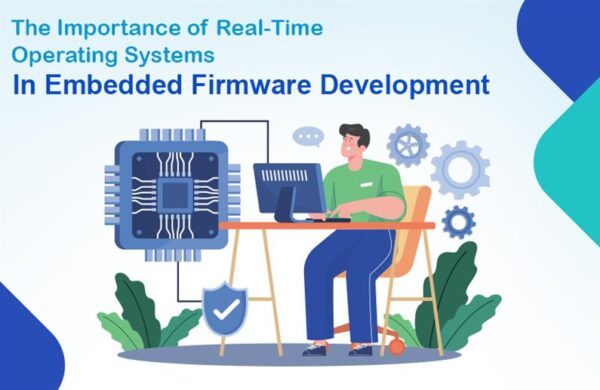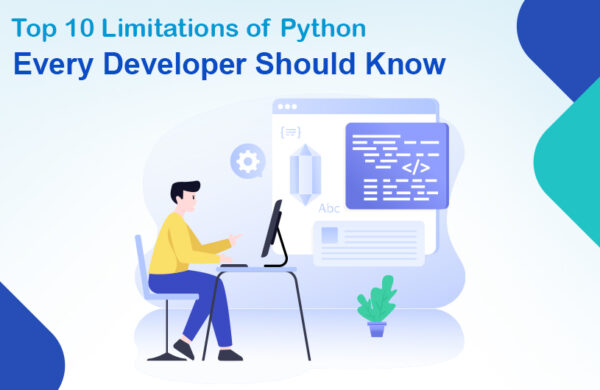When it comes to building Android applications, Kotlin and Java are two of the most popular programming languages used by developers. Both languages are fully supported by Google for Android development and have their similarities and differences.
In this article, we will compare Kotlin vs Java to help you understand the key differences between the two languages and determine which one is a better fit for your next Android project. By the end, you should have a good idea of whether Kotlin or Java is the right choice based on your specific requirements and development needs.
Kotlin vs Java: A Brief History
Let’s start with a quick overview of where these languages came from:
Java – Java was developed by Sun Microsystems (now Oracle) and released in 1995. It quickly became one of the most popular programming languages worldwide due to its platform independence, object-oriented features, and large ecosystem. Java was the primary language used for Android development since the platform’s inception in 2008.

Kotlin – Kotlin is a statically typed programming language developed by JetBrains that was first released in 2016. It was designed to interoperate with Java and has since become a popular alternative for Android development. In 2017, Google officially announced support for Kotlin on Android, and it has been growing rapidly ever since.
So, while Java has a longer history, Kotlin is the newer kid on the block that is gaining significant traction – especially for mobile application development. Let’s dive deeper into comparing the two languages.

Kotlin vs Java: Similarities Between Kotlin and Java
Before exploring their differences, it’s important to note that Kotlin and Java for app development also share many similarities:
- Object-Oriented – Both languages are fully object-oriented and support common concepts like classes, interfaces, inheritance, polymorphism, and abstraction.
- Interoperability – Kotlin is designed to seamlessly interoperate with existing Java codebases. You can call Kotlin from Java and vice versa without issues.
- Platform Independence – Applications developed in either language can run on any operating system that supports Java such as Android, iOS, Windows, Linux etc.
- Large Ecosystem – Due to their popularity, Kotlin and Java both have massive ecosystems of libraries, frameworks, and developer tools/IDEs to choose from.
- Android Support – Google fully supports both Kotlin and Java for building Android applications. You can use either language independently or together in the same project.
So, in summary, Kotlin vs Java share a lot of fundamental similarities that make them both viable options for Android development. Let’s now dive into their key differences.
Kotlin vs Java: Differences
While Kotlin and Java are similar in many ways, there are also important differences between Kotlin and Java language:
- Syntax
Kotlin has a cleaner and less verbose syntax compared to Java. For example, Kotlin does not require semicolons, has default parameter values for functions, and allows declaring variables without specifying their type.
Java follows a more traditional C/C++-like syntax that some developers find more familiar, but others consider more verbose and cluttered.
- Null Safety
Kotlin has built-in null safety features that prevent Null Pointer Exception at compile time. Variables are non-nullable by default and explicitly declare nullable types to avoid common bugs.
Java does not have these compile-time null checks, so Null Pointer Exception is more common and harder to catch during development.
- Type Inference
Kotlin’s type inference allows the compiler to automatically determine the type of variables in many cases without needing to explicitly declare them. This makes code more concise.
Java requires explicitly declaring variable types, which can make code more verbose even when the types are obvious from context.
- Lambdas & Functional Programming
Kotlin has strong support for lambda expressions and functional programming constructs like higher-order functions and extension functions. This makes code more concise.
Java added lambda expressions in Java 8 but still lacks some FP features like default and named arguments that Kotlin provides.
- Other Features
Kotlin also has other modern features like data classes, type-safe builders, and delegation that make code cleaner and more concise compared to Java.
So, in summary, Kotlin provides a more modern and less verbose syntax compared to Java while maintaining full interoperability. This makes code generally more concise and readable.
Performance Comparison
When it comes to performance, Kotlin and Java are quite similar since Kotlin code compiles to Java bytecode. However, there are a few key points regarding their performance:
- Kotlin code is generally faster than equivalent Java code since it produces more optimised bytecode without unnecessary null-checks.
- Kotlin’s null-safety features prevent Null Pointer Exception which is a major cause of crashes that hurt performance.
- Kotlin coroutines improve asynchronous performance compared to callback-based approaches in Java.
- In some micro-benchmarks, Java has shown slightly better performance than Kotlin for numeric/scientific workloads.
But in most real-world Android applications, any performance differences are negligible since mobile devices have gotten so powerful. Both languages produce fast, optimized apps when used properly. So, performance alone is typically not a deciding factor between Kotlin and Java.
Kotlin vs Java: Which is Better for Android Development?
Now that we’ve explored the key differences, which language is generally a better fit for Android development? Kotlin vs Java for Android development? Here are a few considerations:
- Code Quality and Maintainability
Kotlin’s modern features like null-safety, type inference, and concise syntax make code cleaner, more readable and less error-prone compared to Java. This improves code quality and long-term maintainability.
- Developer Productivity
Kotlin’s concise syntax means developers can write less code to implement the same features. Features like default arguments also reduce boilerplate. This increases overall productivity.
- Learning Curve
Java is more widely used and familiar to many developers. But Kotlin’s syntax is also quite intuitive for Java developers to pick up. Modern features make it very approachable.
- Future-Proofing
Kotlin is fully supported by Google and receiving ongoing language improvements. It aligns well with Android’s direction towards modern features like coroutines.
So, in summary, while Java will continue to be supported, Kotlin has become the preferred choice for new Android projects due to its improvements in code quality, developer productivity and future-proofing. Migrating existing Java codebases to Kotlin also has clear benefits.
When to Use Java Instead?
While Kotlin is generally a better choice nowadays, there are still some scenarios where Java may be preferable:
- Legacy Codebases – For large existing Java codebases, rewriting from scratch in Kotlin may not be feasible. Better to migrate incrementally.
- Team Experience – If your team is already very experienced with Java but new to Kotlin, it may be better to continue using Java while learning Kotlin on the side.
- Library Dependencies – Some key third-party libraries your app relies on may not yet have Kotlin bindings, requiring Java usage.
- Complex Numeric Code – As mentioned earlier, Java can have a slight numeric performance advantage for scientific/engineering workloads.
- Server-Side Development – For server-side JVM development like Spring Boot, Java is still the standard choice over Kotlin.
So, in summary, Kotlin is generally a better choice nowadays except for some legacy, team experience, or numeric-focused scenarios where Java may still have an advantage.
Hiring Kotlin or Java Developers
If you choose Kotlin for your next Android project, you’ll need to hire Android app developers with the right skills. Some tips:
- Look for candidates experienced with Kotlin and Android development. While Java skills are valuable too, prior Kotlin experience is important.
- Check their resumes and profiles on job sites like LinkedIn for relevant Kotlin and Android projects they have worked on. Open-source contributions are a plus.
- Ask coding questions focused on Kotlin features like null safety, coroutines, and Android development best practices. This will help evaluate their expertise.
- Consider candidates with experience in Jetpack Compose as well, since this is Google’s recommended UI toolkit for Kotlin/Android for mobile application development that is gaining popularity.
- Check if they have certifications in Kotlin from trusted providers like Kotlin Academy. While not required, these validate their skills.
Kotlin vs Java: Conclusion
To summarise the differences and help you choose:
- New Projects – For new Android projects, Kotlin is usually the best choice due to its improvements in code quality, productivity and future-proofing.
- Existing Projects – For Java codebases, consider migrating incrementally to Kotlin to benefit from its features while maintaining existing logic.
- Team Experience – If your team is already very experienced with Java, it may be better to continue using Java while learning Kotlin on the side.
- Numeric Workloads – Java can have a slight advantage for scientific/engineering apps with intense numeric workloads.
- Server-Side – For server-side JVM development, Java is still the standard choice. rather than Kotlin.
So, in most modern cases, Kotlin will be the better choice compared to Java for its improvements. But Java still has its uses in some legacy, team experience or numeric-focused scenarios. Consider your specific needs and choose wisely.
You can get in touch with Monarch Innovation if you need someone to oversee all project requirements and offer creative, dependable solutions that will exponentially boost your business’s potential for growth in the future. Monarch Innovation creates specialised solutions to assist clients in re-engineering their manufacturing processes to maximise organisational efficiency and outcome.
With a staff of highly skilled individuals and cutting-edge infrastructure, Monarch Innovation has a competitive advantage in the market.
FAQs
Q: Can I use both Kotlin and Java in the same Android project?
A: Yes, you can use both Kotlin and Java in the same Android project. Android Studio supports mixed-language projects, allowing developers to gradually migrate from Java to Kotlin or vice versa. This flexibility is especially beneficial for teams transitioning from Java to Kotlin or working with legacy code.
Q: Why did Google choose Kotlin over Java?
A: Google chose Kotlin over Java for Android development due to Kotlin’s modern features, concise syntax, enhanced null safety, and interoperability with existing Java code. Kotlin’s efficiency, expressiveness, and improved developer productivity made it an appealing choice for the Android ecosystem.





